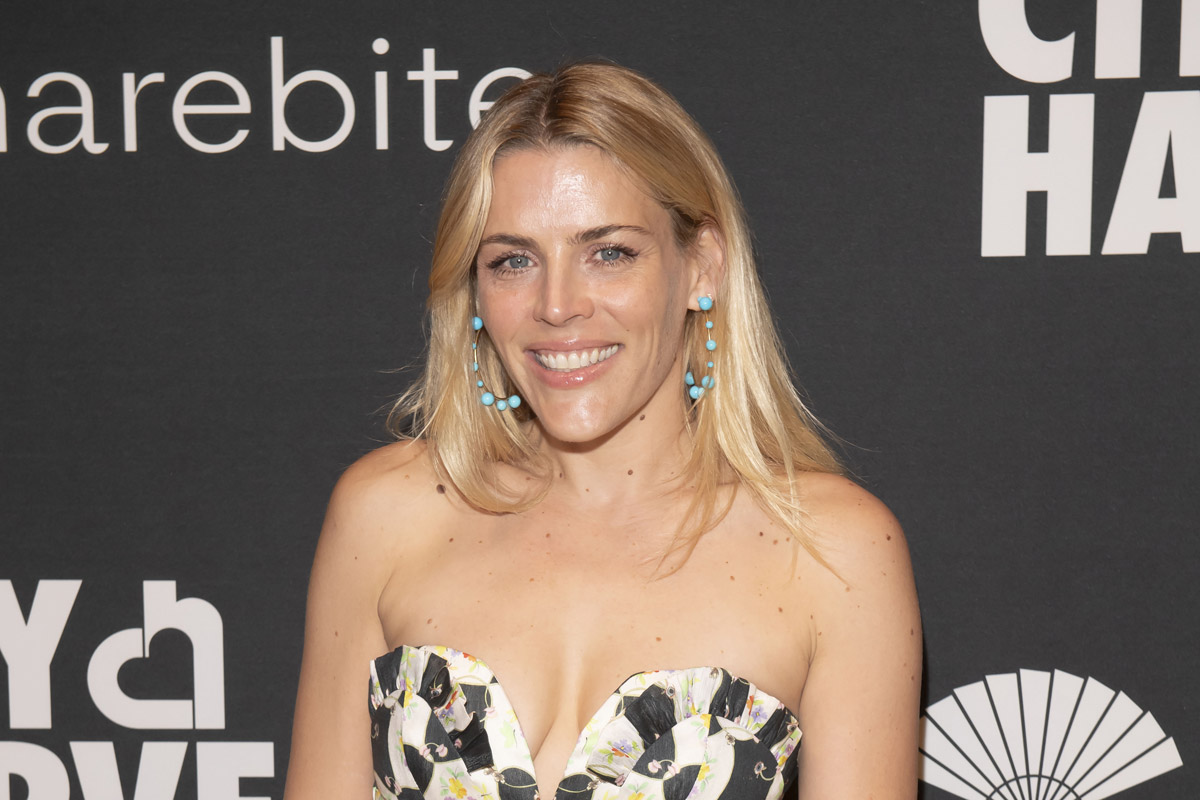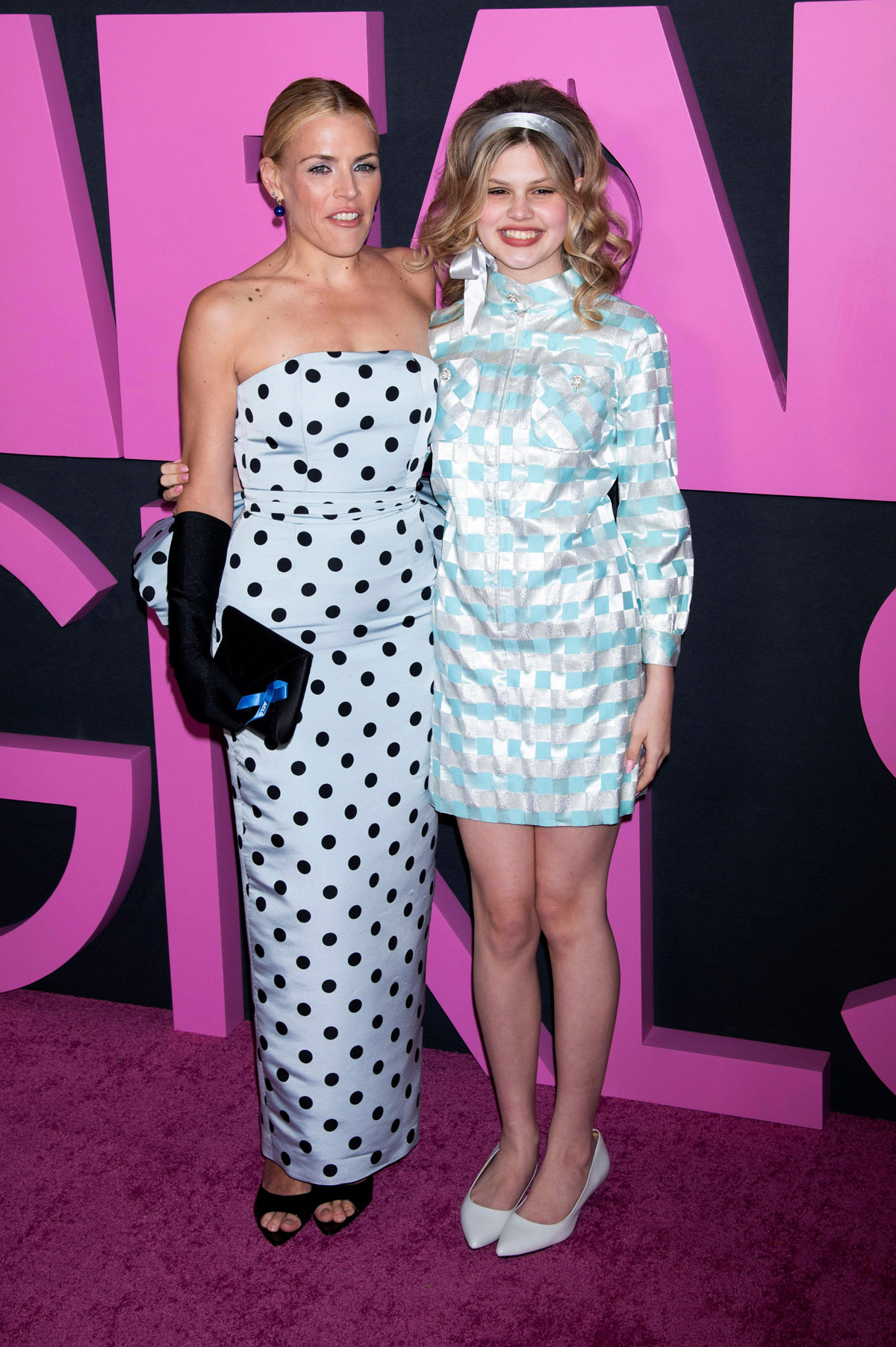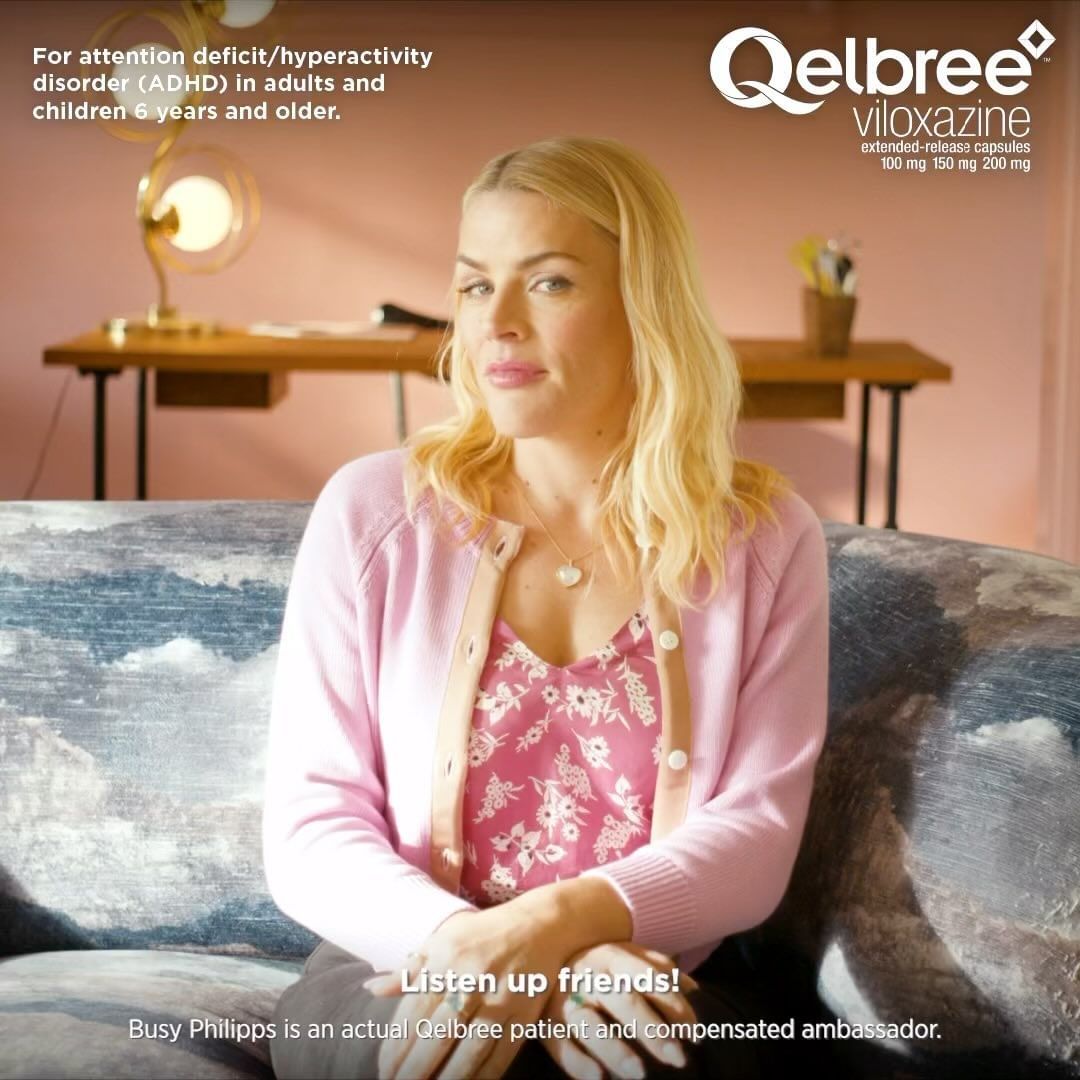ARTICLE AD

Busy Philipps strikes me as someone who is always hustling, which I can’t hate on. Right now, she’s starring in the third season of Girls 5Eva on Netflix. (Side note: Girls 5Eva is such a great comedy; I totally recommend it. The full series is 22 episodes, 30 minutes each.) In addition to promoting G5E, Busy is also, uh, busy talking up her new talk show, Busy This Week, which premieres on May 8 at 10:00 p.m. ET on QVC+. This weekly talk show is 30-minutes long and its premise is “Busy on the couch to get an unscripted take on whatever has kept us busy this week. From celebrity guest interviews and laugh-out-loud moments to personal stories and her favorite curated shopping finds, Busy will give her audience a healthy dose of [retail] therapy.”
But those are the only two projects that Busy has going on right now. She’s also a new spokesperson for the ADHD medication Qelbree. Five years ago, both Busy and her older daughter Birdie were diagnosed with ADHD. In a recent interview with USA Today, Busy spoke more about her diagnosis, including her personal symptoms, how it felt to suddenly have a reasoning behind some of her behavior patterns, and finding a treatment that works for her.
You may think it’s just part of being a parent, thinking you’re overwhelmed constantly. But If you’re struggling and feeling bad about yourself because you’re constantly forgetting things, “it’s worth taking two hours for yourself to invest in your own mental health, and figure out what’s actually going on,” Philipps, 44, tells USA TODAY over a Zoom call from New York.
When Philipps’ daughter Birdie, now 15, was having issues in school, a doctor in Los Angeles started talking to her and ex-husband Marc Silverstein about Birdie and ADHD. The symptoms sounded too familiar.
“My ex-husband and I just started looking at each other because I checked every single box at the highest level,” she says. For years, Philipps thought there was something wrong with her. That she didn’t have follow-through, was lazy or forgetful. Hollywood labeled her “ditzy.”
“I allowed that, especially in my teen years, to be a word that was used to describe me,” she says, “I’m actually not at all ditzy, I’m super focused, and I’m really highly productive and I have great ideas. I just had a struggle my whole life with follow-through with making sure I could prioritize them.”
It manifested as low self-esteem; she’d grow jealous of people who seemed to be productive and keep dates and times straight when she couldn’t even write things down correctly. In her 20s and 30s she used to show up 40 minutes early and hang out in her car – just to make sure she wasn’t late.
“I could not figure out how to be on time, because I would get distracted,” she says.
ADHD shows up differently for girls and women, with symptoms like Philipps’: trouble focusing and keeping organized and maintaining interest. For boys and men, hyperactive and impulsive symptoms are more common. That’s why many girls and women may be underdiagnosed, therefore untreated. Treatments can range from medication to behavior and lifestyle management, according to Children and Adults with Attention-Deficit/Hyperactivity Disorder (CHADD).
After Birdie’s diagnosis Philipps found a doctor of her own and tried out different treatments, ultimately improving both her productivity and how she felt about herself. She currently takes Qelbree, a non-stimulant ADHD treatment approved for adults in 2022; she’s now a paid spokesperson for the brand.
Beyond the medication, though, she has other coping mechanisms: She always writes things down in a notebook and maintains a big calendar in her house with important dates and times. While she appreciates people are discussing mental health all over TikTok and Instagram – and she learned details about ADHD symptoms she didn’t know before – she reminds fans that her ADHD diagnosis and treatment plan came from a doctor, not an influencer.
“We all have to be critical thinkers,” she says, “and we all have to be able to understand that the internet is not the be-all, end-all of everything and sometimes not even the most truthful information.”
I feel all of this so hard because I was also diagnosed with ADHD in my late 30s. Similar to Busy, my catalyst for getting tested was Mr. Rosie suspecting that our son has it. That research made him realize that I checked most of the boxes as well. He used to joke that I always did things “at 100% for 80% of the time,” meaning that I was super productive until it was time for the follow-through. I’m glad that Busy also got her diagnosis, treatment, and peace of mind. I like that although she’s being paid to talk about her treatment, she stresses that you need to figure out the different things that work best for you. Prior to my diagnosis, I started bullet journaling because I found that the routine and accountability helped me stay on track, even if there are days that my brain just won’t start, despite knowing what had to be done.
Like Busy, I also used to feel really down on myself, wondering why I couldn’t do something until the very last minute (“I’m a night owl!” “I thrive under pressure!”) or that I needed to finish a project in one sitting or else I’d lose motivation and never get back to it. Honestly, I still get frustrated with myself some days. Finding out that nothing was “wrong” with me, that it was just that my brain works differently, was an incredible feeling. There are a lot of online resources to help identify the symptoms, and seeing someone and being prescibed medication can truly can be life-changing. If you’re on the fence about getting tested, I totally understand. Give yourself some grace, and for that matter, please remember that you never know what others may be going through because if you’re going through something, the chances are that you’re not alone.
Photos via Instagram and credit: IMAGO/Barbara Hine/Avalon, IMAGO/RW/Avalon, TheNews2/Cover Images

 8 months ago
40
8 months ago
40 



